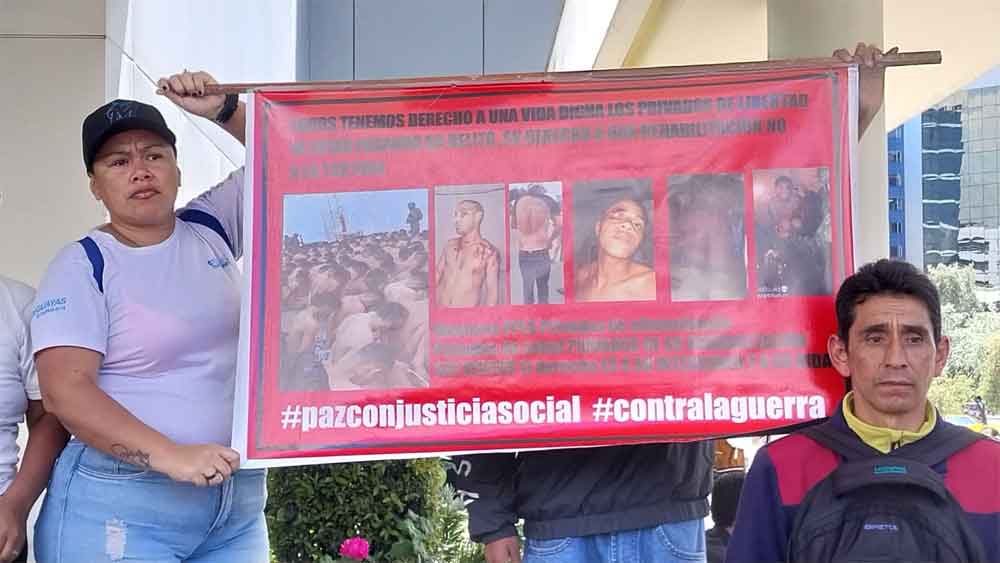The left-wing President of Chile, Gabriel Boric, chose June 21, National Indigenous Day, to launch the work of the Commission for Peace and Understanding. It is a body that will have transversal political integration – its members will be announced on Wednesday – and seeks to create a dialogue, but above all a political solution, to the conflict in the Mapuche region that has intensified and become more complex since 1997. The focus is on an issue that has always been of constant tension: the return of territory , a historical requirement of the largest indigenous people in Chile.
The executive chose Santiago, the capital, and not the regions in the south of the country that the commission would cover – Biobio, Los Rios, La Araucanía and Los Lagos – for submission to the pool of commissioners. It did so as a political signal that it is not an issue only for those who live in those lands, as there are constant attacks by extremist armed groups in a land conflict, but a matter of national interest. What is happening in this region of the country has been rated as one of the most important problems that the South American country is currently experiencing.
La Araucanía is one of the poorest regions in Chile. But also, along with the other three regions that make up the so-called Great South, it is a hotbed of rural violence. Armed groups commit attacks, such as arson, land confiscation, burning of schools and churches, wood theft, drug trafficking, and confrontation with police and civilians. A large part of these territories is subject to a constitutional state of exception, that is, with a military presence, since the government of former President Sebastián Piñera (2018-2022), of the traditional right. It was a measure that he and his faction had rejected when he was an MP. But as violence mounts on the eve of the introduction of the Peace Commission, the ruling party is renewing its resolve.
Last week, on June 16, President La Araucanía visited for the third time, as he went to inaugurate the Temuco-Petrovquin railway. The day before, a church had been set on fire and tarps were found on the spot, which was a common occurrence after attacks. Burek, whose speech has hardened over time, linked the letters to the threats against him. “They won’t scare me.” “You are a small violent minority who will be persecuted and punished by the state accordingly,” said the president, who distinguished violence from the “legitimate” demands of the Mapuche people.
In May 2022, the government presented the Buen Vivir Plan, which consists of a series of measures to maintain dialogue with indigenous peoples, implement regional parliaments and return lands through the National Corporation for the Development of Indigenous Peoples (CONADI), which was created. Announced in November 2022. It is a strategy of the day in charge of psychologist Victor Ramos, who also leads the implementation of the Commission for Peace and Understanding, which was presented by the Prime Minister of the Interior of Porec, Izekia Secches. Part of the president’s political generation, just four days after taking office, the Siches made their first visit to La Araucanía, and were greeted with an attack: roadblocks, barricades and intimidating messages.
Lagos, Bachelet and Pinera
One observer of the process that began on Wednesday is Mapuche historian Fernando Barrican, who told EL PAÍS that one of the most innovative aspects of the Porec government’s proposal is the one that refers to “land reconquest”. “He says they won’t be all, but at least he seeks to make greater progress on the most complex issue of La Araucanía, the land, which, since the 1960s, has been winds of conservatism and more radicalism in the indigenous world.”
The commission that Boric will present is the fourth attempt by the Chilean state since the return of democracy in 1990 to open a political dialogue with indigenous peoples. But in the case of the government’s current project, this is the first project to focus solely on the Mapuche people. In his June 1 public report, the president said the commission would “register the ancestral lands claimed by the Mapuche communities, as well as grant deeds, and propose to the country mechanisms, with fixed deadlines, to make it possible to repair this historical debt.”, addressing the roots of the debt. Conflict and the identification of territories that cannot be returned at the same time.
Once this cadastre exists, which will be done through the compilation of information that the Commission is doing with hundreds of Mapuche communities regarding the lands they claim, it will only be possible to determine which of them can be reclaimed and which are not. Faced with expectations and the tension prevailing in the country over what scale this situation might have, “there are lands today where cities are built, and those cities will be preserved,” Borik said. He noted that, at the end of the work, it was intended to “offer the reconciliation and reunification of the Chilean people and the Mapuche people”.
In January 2001, Socialist President Ricardo Lagos (2000-2006) created the Commission on Historical Truth and the New Deal, which has 25 members and is chaired by former Chilean President, Christian Democrat Patricio Aylwin (1990-1994). It had representatives from all of the indigenous peoples of Chile, as well as members of the Catholic and Evangelical churches, business associations, and academics. Two years later, he submitted a report in which he presented a series of recommendations and proposals for state policy for a new state dealing with indigenous peoples.
In 2016, in her second government, Socialist President Michelle Bachelet (2014-2018) promoted the Presidential Advisory Committee for Araucanía, led by then-Bishop of Temuco Hector Vargas. Among his various recommendations, he proposed constitutional recognition of indigenous peoples, their political representation in Congress, the creation of a Ministry of Indigenous Peoples, the Araucanía Law, as well as a new land purchase regulation.
Former President Sebastian Piñera, of the traditional right, presented the Araucanía Plan in 2018, led by the Minister of Social Development, Alfredo Moreno, whose centerpiece was “the will to dialogue, the search for agreements and peace; the recognition and appreciation of cultural diversity and the movement towards the inclusive and inclusive development of the region.” It was an initiative that had many achievements, as recognized by various political sectors. However, the killing by the police of Mapuche community member Camilo Catrlanca, on November 14, 2018, ended the dialogues.
Five years later, Boric began a new attempt at dialogue with the Mapuche people, less than a year after Chile rejected a proposal for a new constitution drafted by 17 indigenous peoples that included major breakthroughs for them. The new process will not start from scratch, as it will take many of the experiences of previous governments. Moreno could be one of the members of the committee that will be presented at the Palacio de La Moneda.

“Unapologetic tv specialist. Hardcore zombie trailblazer. Infuriatingly humble problem solver.”





:quality(85)/cloudfront-us-east-1.images.arcpublishing.com/infobae/PAGKJH7CJBDBHOF4XHKELQPZV4.jpg)
/cloudfront-eu-central-1.images.arcpublishing.com/prisa/JEPQVHO23ZFKPA3Q3L66TTAEOU.jpg)
More Stories
Relatives of prisoners in Ecuador condemn ill-treatment and food shortages (+photos)
Increased retirement age in the Czech Republic
Breaking news on Gaza and pro-Palestinian protests on American campuses, live: news and more